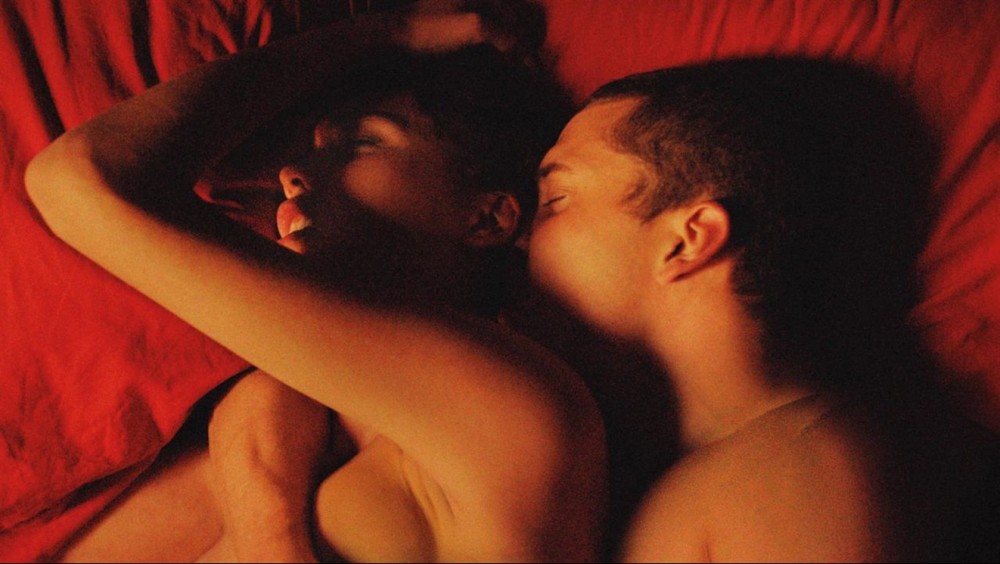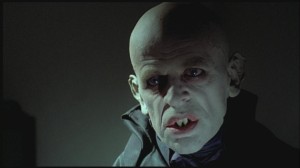
Gaspar Noé’s Love opens without an ounce of shame, with a woman and man masturbating in bed, their bodies fully presented to the audience (in 3D or 2D depending on your viewing experience). It’s not a particularly erotic scene—though there are plenty of those littered throughout—but it does set the tone for the film almost immediately. Noé presents us a work of art that wishes it was both intimate and distant, both provocative and sensitive. The result is neither here nor there though, resulting in the auteur’s tamest and arguably most accessible film to date.
Accessibility is in the eye of the beholder, though, and as Love is a film that revolves around the lives of three individuals: Murphy, a film student; his current girlfriend Omi, who has recently given birth to his son; and his former girlfriend Electra, who he remains fiercely in love with. The only perspective we genuinely receive is Murphy’s, of course, as the concept of actually diving into a feminine mindset must send a filmmaker so preoccupied with his own ego into a fit of laughter.
The voiceover of a man who regrets an abundance of decisions in his life grows tiresome easily, and Love is plagued with actor Karl Glusman’s voice as Murphy ingests drugs and reminisces on his past. It’s a film that once again shows the filmmaker’s disregard for presenting a linear narrative, instead cutting around through Murphy’s life, from present day through a series of memories that don’t always connect well. There’s more of an emotional through-line here than his former features at least, but Noé’s unbearable dialogue hampers any attempts at allowing the audience to connect with his characters and their emotional struggles.
The fact that moments of seemingly personal dialogue are interspersed with rather embarrassing jokes (for instance: a baby named Gaspar, Noé playing a gallery owner who fucks the leading actress, another interior penetration shot, and a cumshot that “comes right at you”) makes it as tonally inconsistent as a film can be, weakening some of the film’s stronger moments where the images are allowed to speak for themselves and deliver their intended impact.
In pairing himself yet again with director of photography Benoît Debie (interviewed earlier this year), Noé offers up a plethora of scenes that are at least appealing to look at, even when they’re lacking in satisfying content. There’s a not-so-delicate balance between the sex scenes and the narrative unfolding, which could have perhaps been cleared up with a firmer hand in the editing room.
The sex is often cut up in an unnecessary fashion, but the way it’s shot, the perfectly curated music that accompanies it, and its low but seductive production value recalls a time when pornography was for more than just getting off. There’s an art to the way each individual scene is presented, some with a clear intent to arouse (a threesome between actors Karl Glusman, Aomi Muyock, and Klara Kristin in particular) and others destined to fill the viewer with dread (anonymous orgies and the lead-up to discovering a broken condom).
Simply by knowing where one stands with the work of Gaspar Noé before entering will one know if Love is the kind of experience that will appeal to them. It’s a work of art, no doubt, but it’s one that will surely leave viewers as divided as I Stand Alone, Irréversible, and Enter the Void did. But, where his last two have left me entirely uninterested in engaging with them again, something about the somber way Love reaches its climax left me with a longing to experience it again. As overwhelmingly flawed as it is, there might just be more to Love than meets the eye.
—
Directed by Gaspar Noé; written by Gaspar Noé; starring Karl Glusman, Aomi Muyock & Klara Kristin; 135 minutes.
Love is currently experiencing a limited theatrical release. In Miami, it is showing at Miami Beach Cinematheque and Cosford Cinema.



 Derek
Derek
 Isabelle
Isabelle